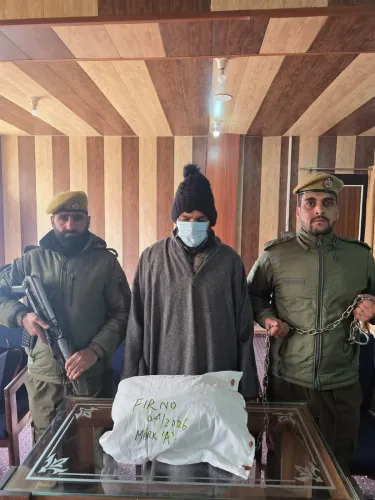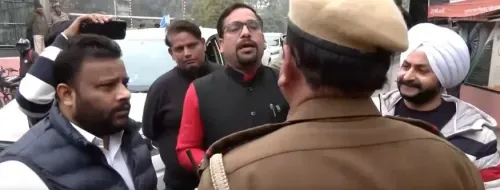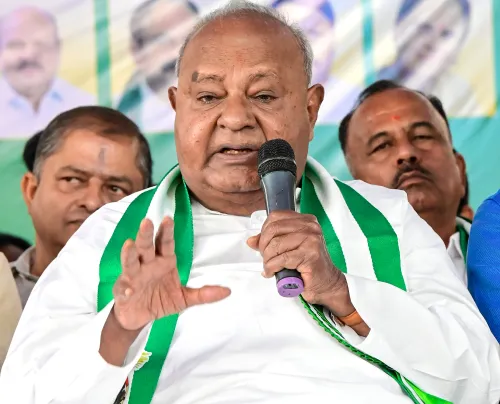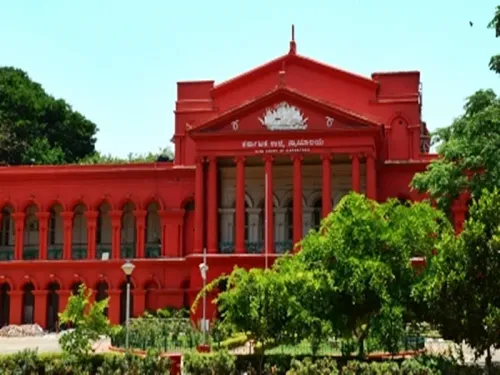Why Did the Supreme Court Rebuke Nishikant Dubey Over His Judiciary Comments?
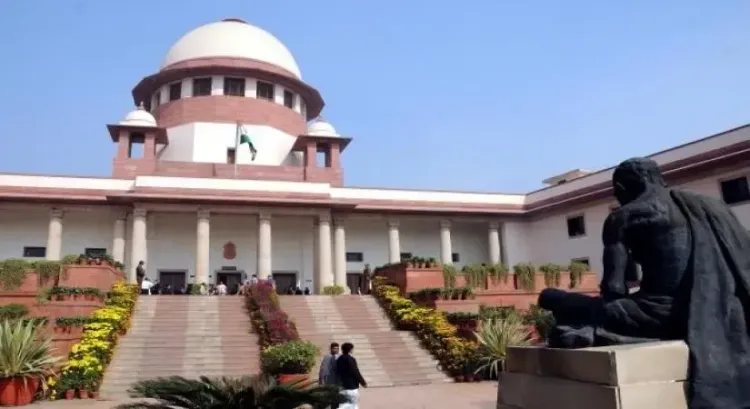
Synopsis
Key Takeaways
- The Supreme Court strongly rebuked Nishikant Dubey for his irresponsible comments.
- Judicial integrity and the importance of responsible speech are emphasized.
- The BJP clarified that Dubey's remarks do not represent the party's views.
- Hate speech is condemned as detrimental to societal harmony.
- The Court reiterated that there is no civil war in India.
New Delhi, May 8 (NationPress) The Supreme Court has criticized BJP Lok Sabha member Nishikant Dubey for his “highly irresponsible” and “absurd” remarks regarding the judiciary and the Chief Justice of India (CJI).
During a recent interview amidst the ongoing hearings concerning the constitutionality of the Waqf (Amendment) Act, 2025, Dubey, who represents Jharkhand’s Godda, claimed that “Chief Justice of India Sanjeev Khanna is responsible for all the civil wars happening in India” and that “only and only the Supreme Court is responsible” for inciting religious conflict in the nation.
In response, a bench consisting of CJI Sanjiv Khanna and Justice Sanjay Kumar stated, “In our opinion, the comments were highly irresponsible and reflect a penchant to attract attention by casting aspersions on the Supreme Court of India and the Judges of the Supreme Court.” This statement was recorded in an order published on the apex court's website Thursday.
While the Court declined to consider a public interest litigation (PIL) that sought contempt of court action against Dubey, it emphasized that the judiciary does not require protection from its rulings through contempt powers.
Nonetheless, the CJI Khanna-led Bench affirmed that any efforts to propagate communal animosity or engage in hate speech must be firmly addressed.
They added, “Hate speech cannot be tolerated as it leads to loss of dignity and self-worth of the targeted group members, contributes to disharmony amongst groups, and erodes tolerance and open-mindedness, which is a must for a multi-cultural society committed to the idea of equality.” Furthermore, it was mentioned that attempts to alienate or humiliate targeted groups constitute a criminal offence that must be treated seriously.
Upon reviewing Dubey’s statements, the Supreme Court concluded that his remarks could potentially scandalize and undermine the authority of the Court, indicating an interference with the ongoing judicial processes.
Stating that there is no ‘civil war’ in India, the apex court reiterated that judicial decisions are made following legal principles rather than political, religious, or community motivations.
“Certainly, courts and judges possess the resilience to withstand such ludicrous statements without wilting,” the CJI Khanna-led Bench remarked. “We firmly believe that public confidence in the courts cannot be easily shaken by such absurd remarks, although there appears to be a deliberate attempt to do so.”
A PIL filed by advocate Vishal Tiwari claimed that Dubey’s comments were derogatory towards the judiciary and the Supreme Court, arguing that such actions amount to an offence under the BNS (Bharatiya Nyaya Sanhita) and Section 15 of the Contempt of Courts Act, 1971.
The CJI Khanna-led Bench, on a Monday, had refused to entertain the plea for contempt action against Dubey, indicating, “We will pass a short order. We will not be entertaining it, but we will give a short order expressing our views.”
The Bharatiya Janata Party (BJP) distanced itself from Dubey’s remarks against the Supreme Court, clarifying that these statements represent his “personal opinions” and do not reflect the party’s position.
BJP chief J.P. Nadda stated in a post on X, “The BJP has nothing to do with the statements made by BJP MPs Nishikant Dubey and Dinesh Sharma on the judiciary and the Chief Justice of the country. These are their personal statements, but the BJP neither agrees with such statements nor does it ever support such statements. The BJP completely rejects these statements.”


